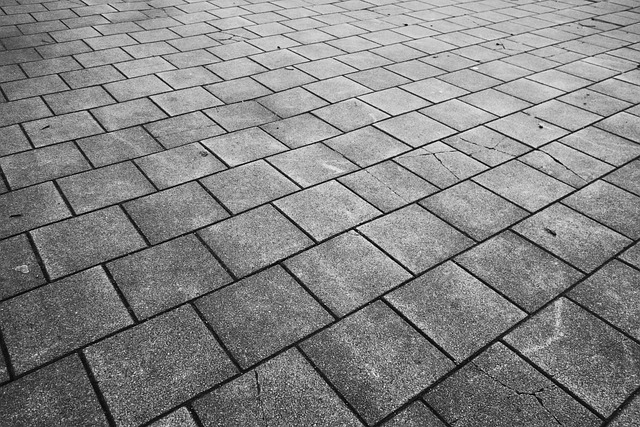Concrete pumping is an efficient and precise method for placing concrete, making it an excellent choice for residential construction projects. Whether you’re building a foundation, driveway, patio, or another structure, using a concrete pump can save time, reduce labor, and improve the quality of the finished work. In this guide, we’ll explore how concrete pumping fits into residential projects, when to use it, and its benefits over traditional pouring methods.
Small-Scale Pumping for Residential Jobs: When to Use a Pump in Smaller Construction Sites
Concrete pumping isn’t just for large commercial projects—it can be just as beneficial for smaller residential jobs. The key is understanding when and why a concrete pump is the right choice for your project.

1. When Space Is Limited
If your construction site has limited access, such as a backyard or a narrow residential street, a line pump can make concrete placement easier. Line pumps use flexible hoses that can be maneuvered around obstacles to deliver concrete exactly where it’s needed.
2. When Manual Labor Isn’t Enough
Hand-mixing and wheelbarrowing concrete may work for very small projects, but for jobs requiring more than a few cubic meters of concrete, pumping is a far better option. It reduces strain on workers and ensures even distribution, preventing inconsistencies in the final structure.
3. When You Need Precision and Efficiency
Concrete pumps allow for precise placement, reducing waste and mess. Whether you’re pouring a sidewalk, slab, or steps, using a pump ensures a consistent, smooth pour with fewer delays.
Home Foundation Work and Concrete Pumps: Why Pumping Is Ideal for Foundations
Laying a strong foundation is crucial for any home. Concrete pumping offers several advantages when it comes to ensuring stability and durability for residential foundations.

1. Faster and More Efficient Pouring
Traditional concrete placement methods, such as using wheelbarrows or chutes, can be slow and require extensive manpower. With a boom pump or line pump, you can place concrete much faster, helping to meet project deadlines without compromising on quality.
2. Enhanced Structural Integrity
A concrete pump allows for continuous, even pouring, which helps prevent cold joints—areas where fresh concrete doesn’t bond properly to an earlier pour. This improves the overall strength and durability of the foundation.
3. Ideal for Hard-to-Reach Areas
For homes built on sloped land or with deep foundations, getting concrete to the right location can be difficult. A boom pump can extend over obstacles and deliver concrete precisely where it’s needed without requiring excessive manual labor.
DIY vs. Professional Pumping Services: When Should You Hire Experts?
While DIY concrete projects can save money, there are times when hiring a professional pumping service is the smarter and safer option.
1. When Precision Matters
If you’re pouring concrete for a foundation, driveway, or patio, achieving a smooth and level finish is crucial. Professionals have the experience to handle pump pressure, flow rates, and placement techniques to ensure the best results.
2. When Safety Is a Concern
Concrete pumping involves heavy machinery and high-pressure hoses, which can be dangerous for inexperienced operators. Hiring professionals eliminates the risk of injury and ensures the job is done safely.
3. When Time Is Limited
If you’re working on a tight schedule, professionals can complete the job faster and more efficiently than a DIY approach. They also bring specialized equipment and expertise that minimize delays and mistakes.
Benefits of Pumping for Driveways and Patios: How Pumps Make Outdoor Concrete Projects Easier
Outdoor concrete projects such as driveways, patios, and sidewalks benefit greatly from concrete pumping. Here’s why:

1. Smoother and More Even Surfaces
Using a pump ensures that concrete is placed evenly without gaps or weak spots, which is crucial for driveways and patios that must withstand heavy loads and weather conditions.
2. Reduced Labor and Cleanup
Wheelbarrowing concrete can be exhausting and messy. A pump eliminates spillage, reduces manual labor, and keeps the site cleaner, making post-construction cleanup much easier.
3. Ability to Work Around Landscaping Features
If your yard has existing trees, garden beds, or pathways, manually transporting concrete can be difficult. A line pump allows for precise placement around these features without disturbing them.
4. Faster Drying and Curing Times
Since concrete pumps allow for a continuous and consistent pour, there are fewer interruptions in the curing process. This helps the concrete set more uniformly, resulting in a stronger final product.
Conclusion: Making the Right Choice for Your Residential Concrete Project
Concrete pumping is a game-changer for residential construction, offering efficiency, precision, and improved quality over traditional methods. Whether you’re working on a foundation, driveway, patio, or other home improvement project, using a pump can save time, reduce labor, and ensure a long-lasting, high-quality finish. If you’re unsure whether pumping is right for your job, consulting with a professional concrete pumping service can help you make an informed decision.
Need Expert Concrete Pumping Services?
If you’re ready to start your project and want professional, hassle-free concrete pumping, check out our Concrete Pumping Mackay Service Page to learn more!